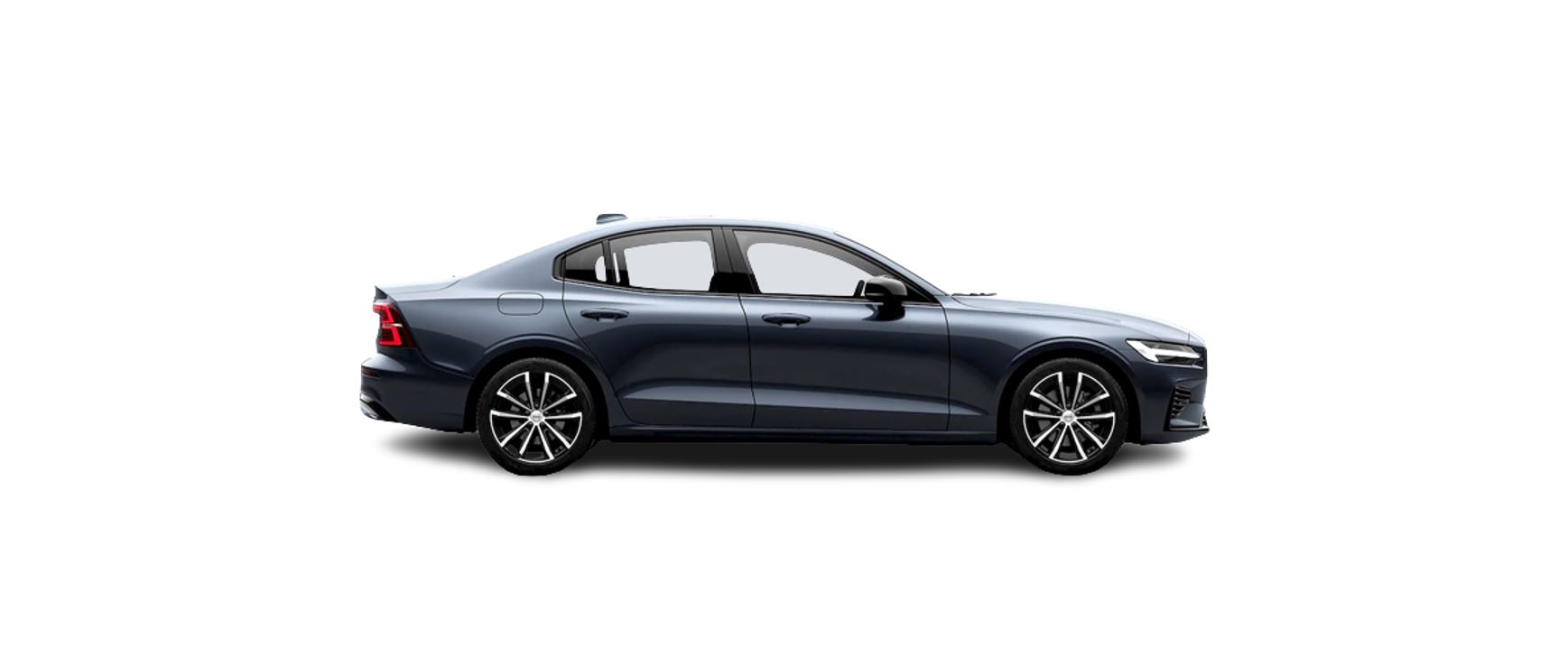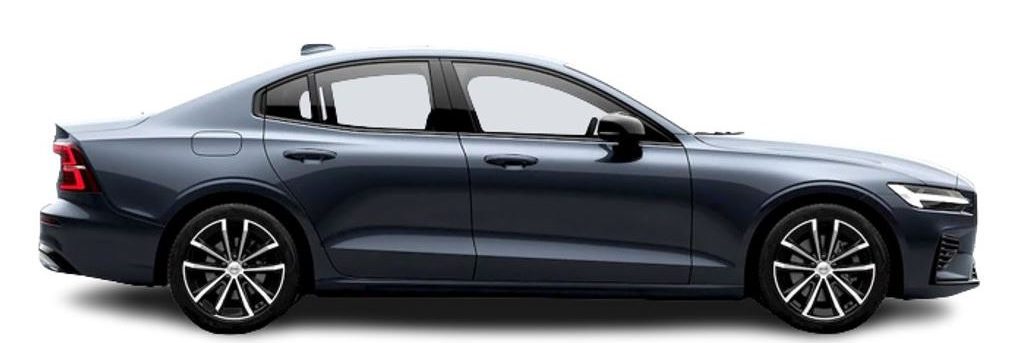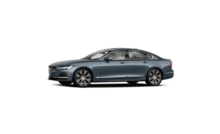Warning
Remember not to clip or hook the seatbelt to hooks or other interior fittings, as this prevents the belt from tightening properly.
Warning
The seatbelts and airbags interact. If a seatbelt is not used or is used incorrectly, this may diminish the protection provided by the airbag in the event of a collision.
Warning
- Never modify or repair the seatbelts yourself. Volvo recommends that an authorised Volvo workshop should be contacted.\
- If the seatbelt has been subjected to a major load, such as in conjunction with a collision, the entire seatbelt must be replaced. Some of the seatbelt’s protective properties may have been lost even if the seatbelt does not appear damaged. The seatbelt must also be replaced if it shows signs of wear or damage. The new seatbelt must be type-approved and designed for installation at the same location as the replaced seatbelt.
Putting on and taking off seatbelts
Putting on seatbelts
Pull out the seatbelt slowly and make sure it is not twisted or damaged.
Note
The seatbelt is equipped with an inertia reel that is locked in the following situations:
- if the belt is extended too quickly.
- during braking and acceleration.
- if the car leans heavily.
- when driving in sharper bends.
Lock the belt by inserting the locking tab in the intended buckle.
A loud “click” indicates that the belt has locked.
Warning
- Always insert the tongue of the seatbelt into the buckle on the correct side. The seatbelts and buckles would otherwise possibly not function as intended in the event of a collision. There is a risk of serious injury.
- In the front seats the seatbelt can be adjusted for height.
- Press together the seat mounting and move the seatbelt up or down.
- Position the belt as high as possible without it chafing against your throat.
- The seatbelt must pass over the shoulder (not down over the arm).
- Tension the hip strap over the lap by pulling the diagonal shoulder belt up towards the shoulder.
- The hip strap must be positioned low down (not over the abdomen).
Warning
Remember not to clip or hook the seatbelt to hooks or other interior fittings, as this prevents the belt from tightening properly.
Warning
Do not make any damages on seatbelts nor insert any foreign objects into a buckle. The seatbelts and buckles would then possibly not function as intended in the event of a collision. There is a risk of serous injury.
Taking off seatbelts
Press the red button on the seatbelt buckle and then let the belt retract.
If the seatbelt does not retract fully, feed it in by hand so that it does not hang loose.
Seatbelt tensioner
Standard seatbelt tensioner
- All the seatbelts are equipped with a standard seatbelt tensioner.
- The seatbelt tensioner tensions the seatbelt in the event of a collision with sufficient force in order to more effectively restrain the occupant.
Electric seatbelt tensioner
- The driver and front passenger seatbelts are equipped with an electric seatbelt tensioner.
- The seatbelt pretensioner works together and can be activated together with the driver support systems for assistance at risk of collision and Rear Collision Warning. In critical situations, such as panic braking, driving off the road (e.g. the car rolls into a ditch, lifts off the ground or hits something in the terrain), skidding, or risk of collision, the seatbelt can be tensioned by the seatbelt tensioner’s electric motor.
- The electric seatbelt tensioner helps to adjust the occupant to a better position, reducing the risk of striking the car’s interior and improving the effect of safety systems, such as the car’s airbags.
- When the critical situation has come to an end, the seatbelt and the electric seatbelt pretensioner are restored automatically, but they can also be restored manually.
Important
If the passenger airbag is deactivated, the electric seatbelt tensioner on the passenger side will also be deactivated.
Warning
- Never modify or repair the seatbelts yourself. Volvo recommends that an authorised Volvo workshop should be contacted.
- If the seatbelt has been subjected to a major load, such as in conjunction with a collision, the entire seatbelt must be replaced. Some of the seatbelt’s protective properties may have been lost even if the seatbelt does not appear damaged. The seatbelt must also be replaced if it shows signs of wear or damage. The new seatbelt must be type-approved and designed for installation at the same location as the replaced seatbelt.
Resetting the electric seatbelt tensioner
- The electric seatbelt tensioner is designed to be reset automatically, but the seatbelt tensioner can be reset manually if the belt remains extended.
- Stop the car at a safe place.
- Unfasten the seatbelt and then refasten it.
- The seatbelt and electric seatbelt tensioner are reset.
Warning
- Never modify or repair the seatbelts yourself. Volvo recommends that an authorised Volvo workshop should be contacted.
- If the seatbelt has been subjected to a major load, such as in conjunction with a collision, the entire seatbelt must be replaced. Some of the seatbelt’s protective properties may have been lost even if the seatbelt does not appear damaged. The seatbelt must also be replaced if it shows signs of wear or damage. The new seatbelt must be type-approved and designed for installation at the same location as the replaced seatbelt.
Door and seatbelt reminder
Information in the driver display
- Graphic in the driver display.
- The graphic in the driver display shows the status of the seatbelts, bonnet, boot lid and doors.
- The graphic can be acknowledged by pressing the O button on the right-hand steering wheel keypad.
Seatbelt reminder
- Visual reminder in the roof console.
- A visual reminder is given in the roof console and by means of the warning symbol in the driver display.
- The type of visual reminder (fixed or flashing) and audible reminder (various signals) is dependent on the speed, driving time and distance.
Note
- The seatbelts built into child restraint systems are not included in the seatbelt reminder system.
- Reminders or information are provided by graphics in different ways depending on the belt position.
For the front seat:
- a reminder is given when the driver or passenger is not wearing a seatbelt while the car is in motion
- a reminder is given when a seatbelt is removed while the car is in motion
- information is given on which seat belts are in use (or not).
For the rear seat:
- a reminder is given when a seatbelt is removed while the car is in motion
- information is given on which seat belts are in use (or not).
Reminders for doors, bonnet and tailgate
If the bonnet, boot lid or a door is not closed properly, the driver display’s graphic shows what is open. Stop the car in a safe place as soon as possible and close the source of the warning.




